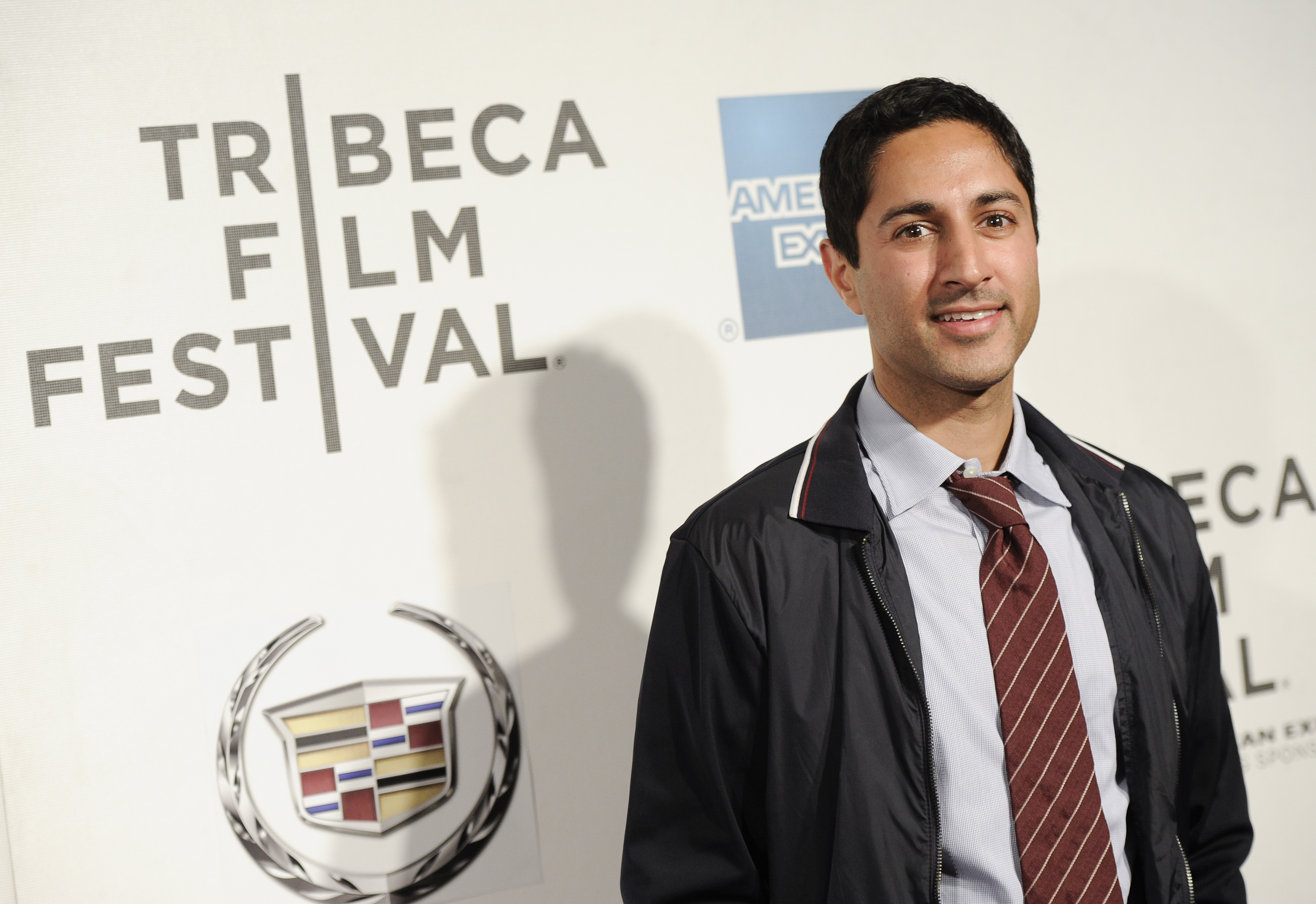Should it have come as any surprise that when PopcornBiz sat down with director Simon Curtis in a Hollywood high-rise to discuss his film “My Week With Marilyn” that he instantly noticed a wall-sized depiction of Marilyn Monroe’s famous face gazing up at us from Hollywood Boulevard?
That’s just how casually all-pervasive Monroe’s image remains in the movie capitol of the world, 49 years after her death in 1962. But – as Curtis’ film, based on the memoir of Monroe confidant Colin Clark’s memoir, adroitly depicts – there’s a considerable gulf between Marilyn the icon and Marilyn the human being, and the filmmaker elaborated on exploring the enduring mystique of the legendary star, played by Michelle Williams, during the making of her 1956 film “The Prince and the Showgirl.”
What was the biggest challenge of not doing a conventional biopic, but capturing a moment in time?
Well, honestly, I feel that's exactly right – but rather than a challenge it was a benefit. It was actually helpful because we weren't taking on the whole life. It was Marilyn at age 30, a very particular crossroads in her life. All of that felt encouraging and achievable, I suppose.
What did you find compelling about her life and experience at that moment in time?
Well, that she was trying very hard having escaped from here to get to New York and surround herself with intellectuals and marrying [Arthur] Miller, setting up a production company and now coming to work with [Laurence] Olivier, but all part of her campaign, if you like, to be taken seriously as an actress. So when she came to England she had the very highest hopes that might actually be about to happen.
Was this story on your radar for a long time?
Yes, it was. Well, there's no great story, I'm afraid. I read the books when they were published and always loved them, and then later on I thought, 'I have to look if those rights are available,' and indeed they were.
How much of a Marilyn Monroe-phile had you been up to that point?
Not that much. It was the books and the journey of a young man's sort of adventure in show business, the film business, which is what appealed to me. And I think that she couldn't get taken seriously and the appetite for learning are what really appealed.
As you were first talking to Michelle Williams about taking on the role, what specifically began to convince you that she could be this character? Marilyn Monroe must be one of the hardest people imaginable to play convincingly.
I think her bravery, her intelligence and crucially, if you look at her body of work she just brings such psychological complexity and nuance to her characters, doesn't she, and that was a Marilyn that I wanted to get, as it were.
As she started to develop the performance when did you know that she was amazing in the character?
U.S. & World
I knew very early on. I had tremendous faith in her, and right from the get-go she was doing something that was, I thought, phenomenal.
How far did she go to really understand Marilyn and then deliver the performance that she did? Did you get a sense of how deep Michelle explored?
I don't think that she can do anything without it being deep. I think that's her modus operandi. It was awe-inspiring to watch.
What appealed to you about that era, physically and stylistically?
Yeah, I like the '50s and I like the fact…I hadn't realized it as I was researching the film, but in 1956, the Second World War, England was still very much in the shadow of the Second World War even in 1956. The idea of American glamour arriving in black-and-white England appealed to me.
Laurence Olivier is as fascinating a character as Monroe. Were there were things that you knew you had to fit in, knowing that he wasn't the leading character, but something that you really wanted to communicate about him and his story at that moment?
I think the fact that he was 50, feeling like it was slipping away from him and his thinking that working with Marilyn would rejuvenate his career and all of that. That's all very important to the movie, and to me.
In what ways do you think that Michelle, as an actress and a person, is similar to Marilyn, and in what ways is she completely different?
I don't know. I don't think in those terms. I think of her as an actress playing a part and that they're both talented, beautiful women with an ambition to learn to be a great actress.
What do you think it is about the image of Marilyn Monroe that's kept her a vibrant icon?
I think the fact that the face and the name are so known, but people don't really know the performances really now. I think it's just one of those things where there's so much sort of soap opera around her life, her marriages, her death. The premature death has kept her in the eye. It's a bizarre mixture of all those things.
It looked like a lot of the shots that you composed with Michelle Williams as Marilyn were inspired by some of the classic iconography we see in the photos of her over the years.
Yes, I suppose. Like, when Colin first sees her in the dressing room in the mirror that's got a Eve Arnold vibe to it, yeah. Nothing massively, I suppose, but yeah.
Do you have any talismans from Monroe, something you picked up that was hers?
No. I just have lots of books and some photographs. My wife gave me a present of one of the Magnum photographs on the set of 'The Misfits' where she's being directed, Marilyn is being directed. That's special to me.
Are there a hundred movies about Marilyn Monroe that could be made about different periods in her life?
Yes, and a hundred movies could be made about this time as well, each of these different people, the Miller version, the Paula Strasberg version of it, the Olivier version of it. But that's what thrilled me: it was the Colin Clark version of it.
Do you think Marilyn’s ultimate fate was somewhat inevitable?
It always feels like that retrospectively, but who knows what could've happened.
People are making their selections now for who's going to be front and center during Hollywood’s “awards season.” How is that process for you? Are you intrigued by it, getting to that circle?
Yeah. I'm really encouraged by meetings like this and what people are saying to me across tables like this, what they're saying in Q&As. The laughter: I've seen it now in 20-25 cities, and hearing the laughter has been very encouraging, and then most of all that most people respond to Michelle and Ken. It's the 50th anniversary of Marilyn's passing next year. I just would love Michelle and Ken to get the recognition I think that they deserve.
Is Hollywood lore something that you might like to explore again in film?
I'm developing “Rock Hudson's Marriage” for HBO, but I don't think something that I want to jump into immediately. I mean, there are a lot of films right now about filmmaking in different ways, aren't there? But I want to do a film or I like films that are about human beings – complicated films about human beings. They're becoming a rarer commodity.
Who was the first iconic movie personality that you became fascinated with?
Woody Allen. I was sort of falling in love with film at the 'Annie Hall' and 'Manhattan' period and I just got very excited about him.
"My Week with Marilyn" is in theaters now



